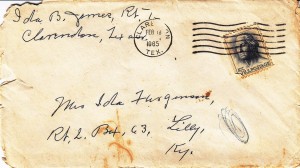This morning I was thinking about blogging and why I or anyone else would continue to post information, ideas, hopes, and dreams into what the writer Armistead Maupin called “the void, into the grey ether of faceless strangers.” I suppose that one reason I continue to blog is that it is an incentive to organize and express my thoughts almost on a daily basis. Maybe it’s my way of postponing Alzheimer’s. My friends are always in mind when I’m writing, though I don’t express my views based upon their comfort zones, or anyone else’s. People send prayers based upon faith that those prayers will land somewhere and be heard and in hope that they will be answered in time. In a way blogging for me is like that. Each day I imagine someone reading what I write and either agreeing or being stimulated to disagree. Sometimes I envision people reading what I’ve written and saying things like, “Ah yes, he’s right on the money about that,” or perhaps, “This guy is completely nuts!” Either way, I am heard.
Ego certainly has a hand in my writing and probably in that of most other writers. As I never had children, there is usually an unspoken desire that I leave something behind to be considered after I’m gone. Though not a consistently conscious reflection, it is, I believe, often just under the surface of my efforts to leave behind something well written. In that respect, the six books of mine that have been published bring me comfort on some level, and working on the next two books gives me a continuing creative purpose. In the Middle Ages, even monks had the desire to leave some of their own thoughts behind in writing. Though monks were often scribes copying sacred texts in breathtaking illuminated manuscripts, many also wrote little notes in the margins about their personal views on earth and heaven. In 1953 the American composer, Samuel Barber (1910-1981) compiled ten such improvisational texts by Irish monks from the 8th to the 13th Century in translation and created a song cycle from them. One is about a monk and his cat, each pursuing his purpose, one immersed in study, the other preoccupied with catching mice. In another, called “The Heavenly Banquet,” the monk scribbled in the manuscript margin that he hoped to see in heaven the Virgin Mary and the Holy Family ‘round a great lake of beer. I’m not sure that he ever really expected to be read and remembered for that verbal image, but he felt a compulsion to express it on paper, nonetheless. That “compulsion” goes back even further to those who carved messages in stone or pressed them into clay tablets. Maybe they too were “blogging.” Those who tell their stories to bartenders or to grandchildren are perhaps satisfying the same need to share their experiences and views.
People who feel the need to text daily, to e-mail, to create graffiti, are all “bloggers” of different sorts. Again, it all goes back to the need to communicate, which is a very human pursuit. For perhaps the first time in history, we are all able to share our thoughts with hundreds or even thousands of others at once without having to be on the radio or on television. There is, therefore, all the more reason for us to refine or distill our thoughts in writing in order to express something in the best ways we can, whether for sheer entertainment or enlightenment, which often overlap anyway. JB




